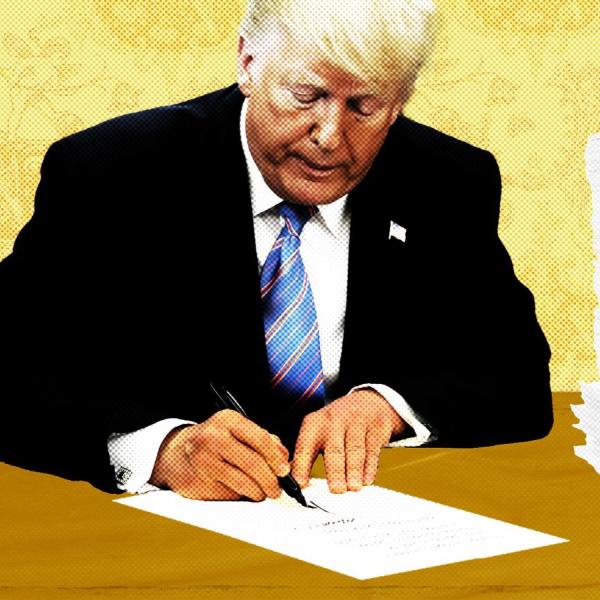News
Stay up to date on the latest crypto trends with our expert, in-depth coverage.
Quick Take Summary is AI generated, newsroom reviewed. BitMine purchased 104,336 ETH worth $417 million during a 20% price dip. Rising Ethereum whale activity signals renewed institutional accumulation. On-chain data confirms large holders are steadily increasing their positions. The move highlights confidence in Ethereum’s long-term strength despite short-term volatility.References 🔥 TODAY: BitMine bought 104,336 $ETH worth $417M as prices fell 20% from August highs, per onchain data.


With the transfer of 127,271 BTC, the United States has become the world's largest sovereign holder of bitcoin.

Which new-generation projects are attempting to break away from the old path of "speculative games"?

On October 14, the U.S. Department of Justice announced criminal charges against Chen Zhi, founder of Cambodia's Prince Group, and successfully seized 127,271 BTC under his control, with a market value of approximately $15 billion. This event marks not only the largest judicial seizure of virtual assets in history, but also a public demonstration of state power directly exercising control over on-chain assets.

What drives the market is not only cold economic data, but also greed, fear, and the unpredictable nature of human behavior.

Overview of key market events on October 15th.
- 04:14"Federal Reserve Mouthpiece": Missing Key Economic Data May Lock in 25 Basis Point Rate Cut PathJinse Finance reported that the "Federal Reserve mouthpiece" and Wall Street Journal reporter Nick Timiraos wrote on Thursday that an ongoing government shutdown is putting Federal Reserve officials in a position where they may have to make their next interest rate decision without access to key economic data—data that could have quelled the heated debate over the extent and speed of rate cuts. Ironically, without clear evidence of a sharply deteriorating labor market provided by these reports, efforts by Trump and his allies to push for larger rate cuts are likely to be in vain. The article states that the absence of new government data essentially locks in the prospect of another 25 basis point rate cut at the Fed's next meeting in two weeks—the same magnitude as last month's cut. Last month, concerns over a sharp decline in the job market outweighed worries about sticky inflation, and Fed Chair Powell said this week that this balance of concerns has not changed during the recent data blackout period.
- 04:06Over 16,000 new developers have joined the Ethereum ecosystem in the first three quarters of this year.ChainCatcher news, according to Cointelegraph, citing data from Electric Capital referenced by the Ethereum Foundation, more than 16,000 new developers joined the Ethereum ecosystem between January and September this year. Solana is the second most popular destination for new developers, with over 11,500 developers joining its ecosystem; however, a representative from the Solana Foundation stated that this data may be outdated. Meanwhile, Bitcoin saw nearly 7,500 new developers. The Ethereum ecosystem has become the largest community of active developers among all blockchain projects, with 31,869 developers. In comparison, Solana has 17,708 developers, ranking second, while Bitcoin has 11,036 developers.
- 04:06Bridgewater Associates founder: Stablecoins are not a good store of wealth, have held a small amount of BTC for many yearsChainCatcher reported that Ray Dalio, founder of Bridgewater Associates, analyzed the characteristics of bitcoin and stablecoins and their roles in investment portfolios in a recent interview with Caixin. He stated that he has held a small portion of bitcoin for many years, and the proportion of his investment has not changed. He regards bitcoin as a diversified asset relative to gold, but also pointed out its shortcomings, noting that central banks in various countries will not hold bitcoin. Ray Dalio further stated that stablecoins are not a good means of storing wealth. Essentially, they can be exchanged for the corresponding currency but do not generate interest. Therefore, from a financial perspective, holding stablecoins is not as advantageous as holding interest-bearing fiat assets. The advantage of stablecoins lies in their global applicability, serving as a convenient settlement system for transactions, making them suitable for people who do not care about earning interest. Regarding whether stablecoins can solve the US Treasury bond issue, he believes that if stablecoin buyers already hold US Treasuries, it is equivalent to transferring US Treasuries from one pocket to another. Whether stablecoins can generate new demand for US Treasuries remains to be seen.